The beauty of French village life lies in its simplicity, calm, and solitude, yet it’s filled with unexpected adventures—like dodging bullets during a peaceful forest stroll! We’ll delve into that story soon.
Amid traditional stone houses that echo the tales of yesteryears, life in rural France unfolds at a leisurely pace, offering a sharp contrast to the bustling urban life.
While motorhoming through France, we caught fleeting glimpses of village life, yet fully immersing ourselves in the Dordogne’s charming way of life for nine months allowed us to truly absorb its essence.
Immersing Ourselves in the Daily Life of a French Village
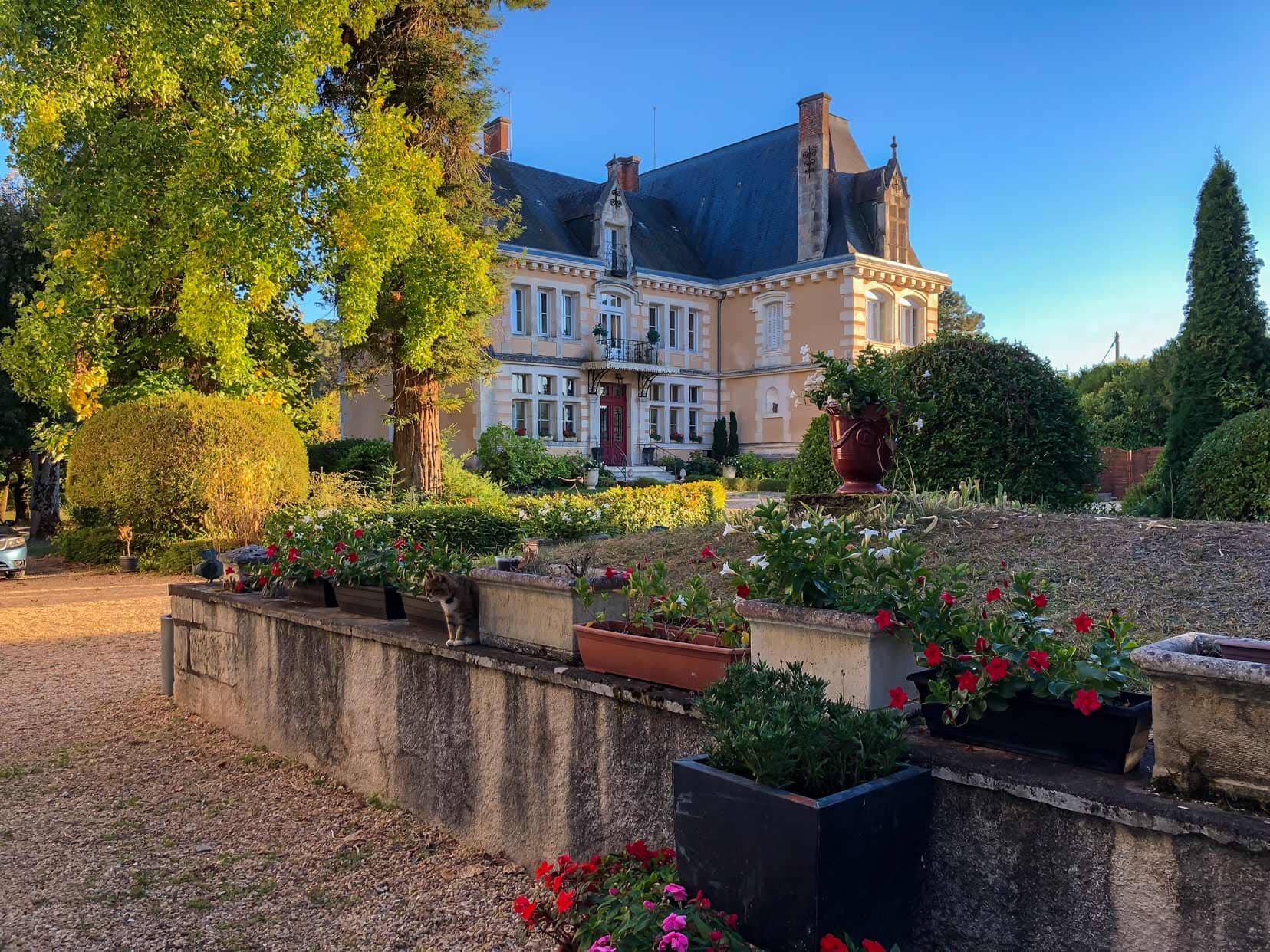
For nine months, we called Villars—a charming village in the Dordogne—our home. This experience allowed us to dive deep into the authentic French village life, a dream I’ve had since my youth.
When the opportunity for a long-term house sit in this picturesque region arose, we jumped at it.
Amid our year-long motorhome journey across Europe, as we headed towards Norway for the summer, we realized the approaching autumn would be the perfect time to settle down temporarily. This pause would not only give us a much-needed break but also the perfect chance to enrich our Road Trip Travel Blog
So, our nine months of life in a French village began, surrounded by three cats, eight chickens, and seven sheep—not to mention the grand old chateau that came with the territory.
Life in rural France was full of furry fun, foie gras and the occasional faux pas.
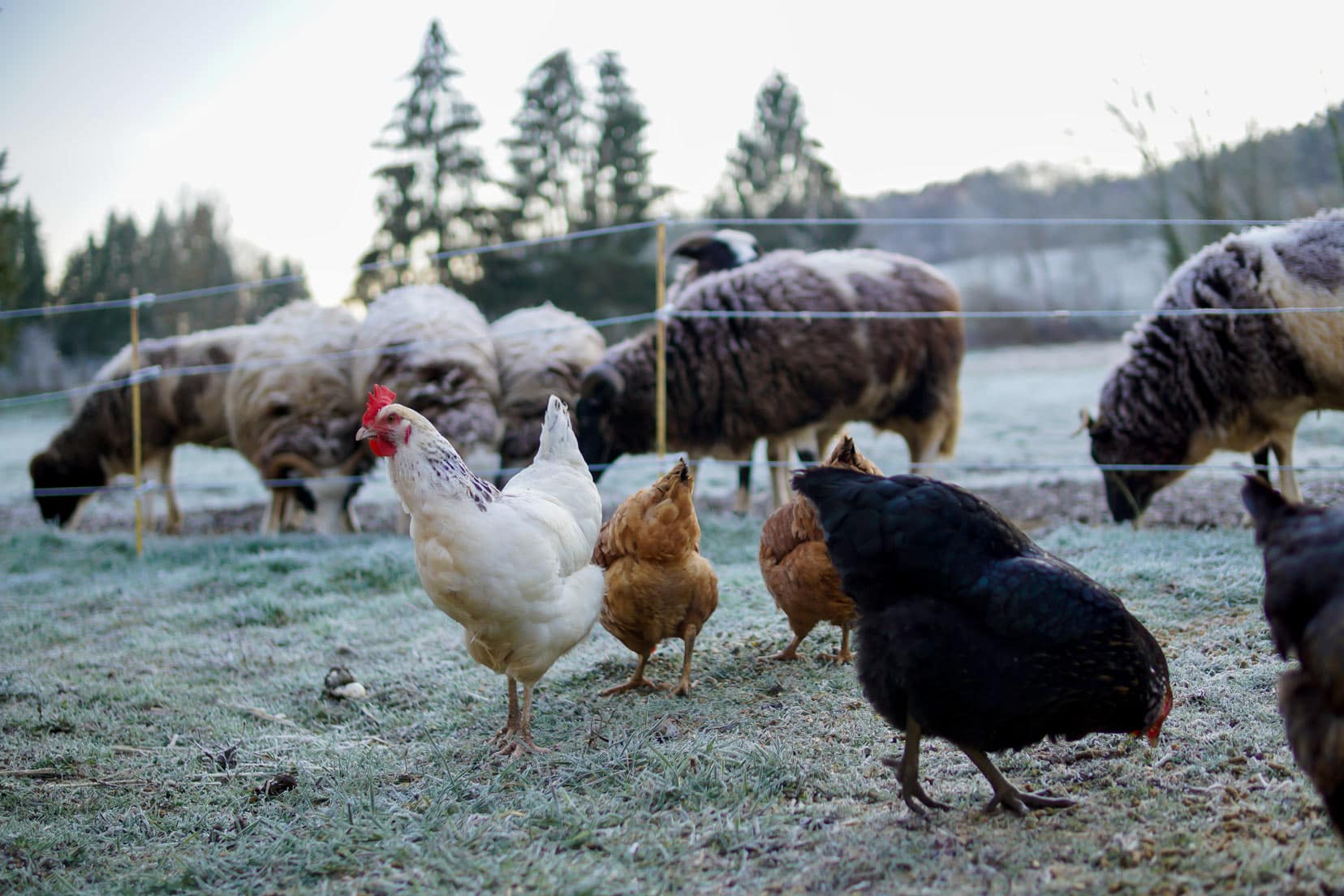
We were looking after a menagerie of animals, each with personalities as distinct as the villagers themselves.
One cat, Bertie, fancied himself the king of the chateau, regularly hissing at Lars if he tried to move him off the bed. Another, Rouge, felt impelled to bring us field mice every night, scratching on the window to be let in with a mouth full of her offerings.
And Red, well, he thought it imperative to wrap himself around your neck and impersonate a scarf if you got close enough for him to jump onto you.
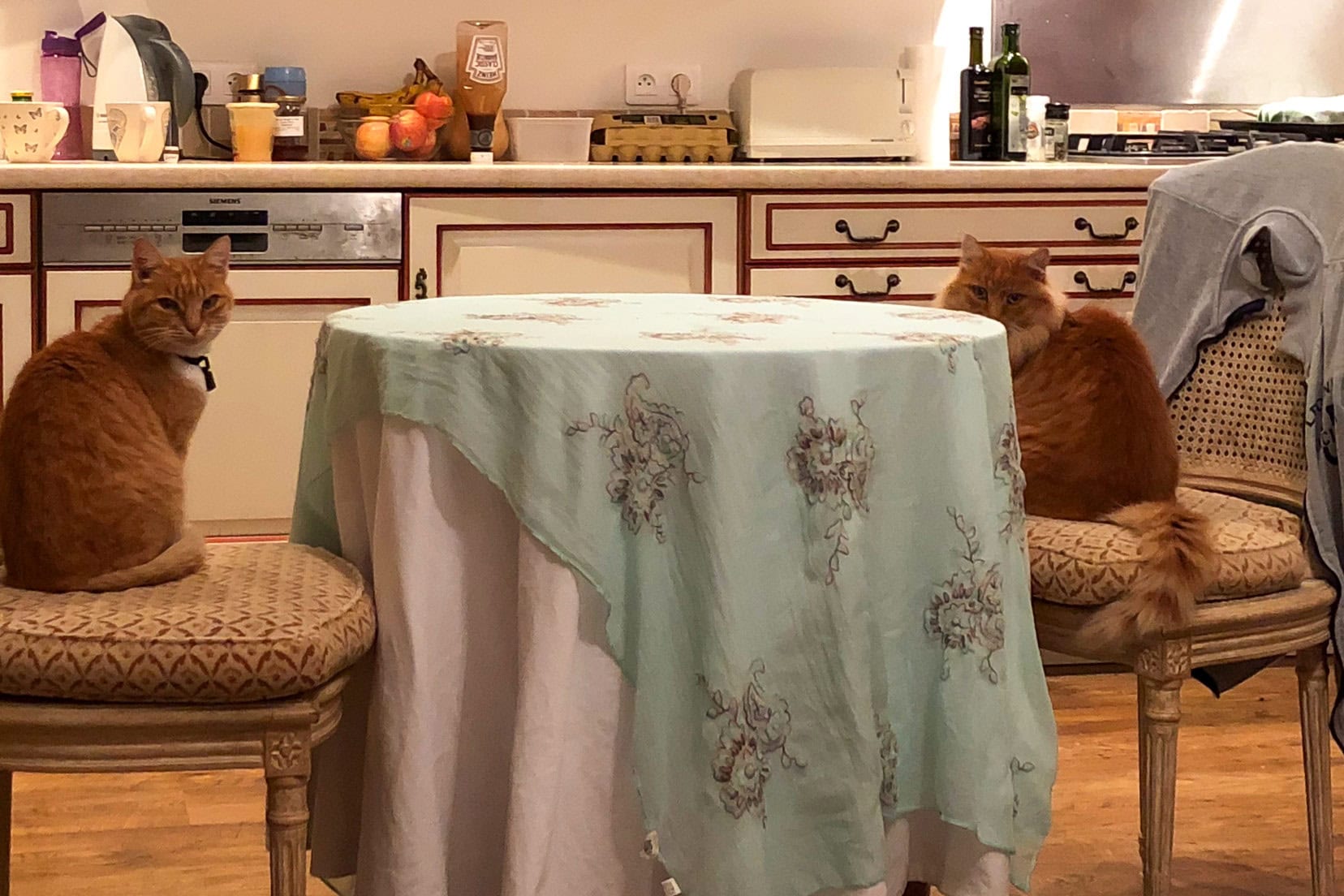
🐾 🐈⬛🐕 We have been using TrustedHousesitters for over six years and have saved over $50,000 in accommodation fees.
Unexpected Adventures: Dodging Bullets in the Dordogne
We never expected to dodge bullets when we dreamed of a tranquil life in a French village. Yet, there we were, startled as gunfire disrupted our peaceful weekends in the Dordogne.
Each weekend from September to February, the local ‘chasse’, alcohol-fuelled, set off on hunts for wild boar and deer in the French fields and woodlands. While hunting is a long-time tradition in France, coming from Australia, it felt quite alien to us.
A word of caution: If you find yourself enjoying the French countryside during autumn or winter, stay extra alert in woodland areas on weekends. And don’t forget to wear bright clothing—you wouldn’t want to be mistaken for a wild boar!
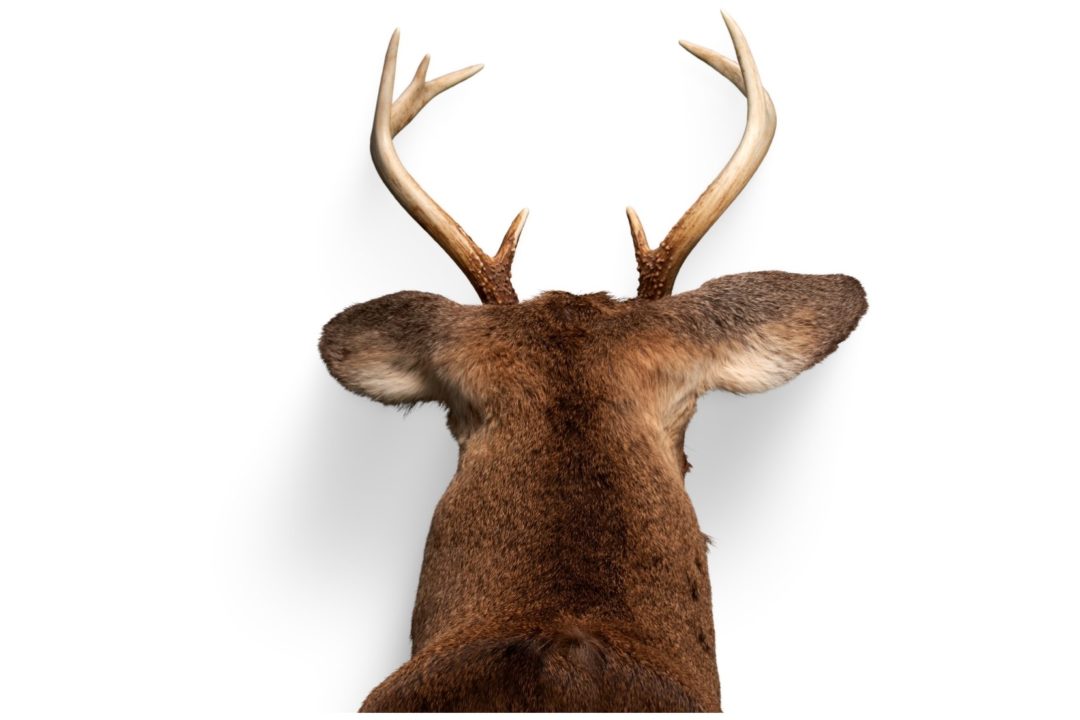
Planning a Trip to France?
- 🚗 Hiring a car? We recommend getting a quote from DiscoverCars
- 🚐 Hiring a campervan? We recommend Motorhome Republic
- ⛑ Arranged your travel insurance? Compare quotes from World Nomads & Safetywing
- 🪪 Order your International Driver’s Licence online here
- 🏩 Booked your accommodation? We use Booking.com to find the best deals
- 🐾 Is someone pet-sitting for you? 🐾 We use and love TrustedHousesitters
- (Get 25% off at checkout for new memberships with our discount code: LIFEJOURNEY25)
Navigating Social Etiquette: Avoiding Faux Pas in French Village Life
In the quaint villages of France, you’re likely to find exceptionally friendly locals—a stark contrast to our experiences in bustling Paris.
Allow me to elaborate on this.
As you stroll through the streets, expect frequent greetings of ‘Bonjour madame/ monsieur’. Mastering basic French phrases can be invaluable, as many rural villagers may not speak English.
In the doctor’s waiting room, new patients often greeted everyone with a ‘Bonjour,’ a courtesy that was warmly returned. Initially, they probably thought us quite rude when we entered without so much as a word!
Living in the village, I was eager to improve my French and was lucky enough to be mentored by Eliane, a multilingual former English teacher. She not only tutored me but also frequently treated us to her homemade jams and cakes.
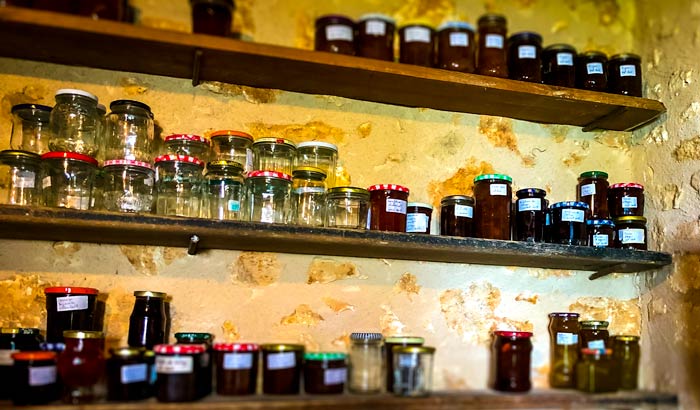
Dinners at Eliane’s were as educational as they were delightful. How can one ever forget the ‘black-assed pig‘ (a speciality of the area) and supping on homemade nettle soup?
Memorably, I struggled to contain my laughter when Eliane once excitedly announced she was looking forward to having a big cock at the weekend. It took me a moment to realize she meant a cockerel for coq au vin, not what I had initially imagined!
My accent and pronunciation proved hilarious to the French at times. At a get-together with some of the villagers, my mention of a sore neck resulted in tears of laughter.
Not the response I’d expected.
Apparently, I had said I had a sore arse! The French word for the neck is cou ( pronounced koo), and the word for arse is cul (pronounced kue) … Just a slight change in vowel sound can lead to quite the mix-up!
Savouring Foie Gras: Culinary Traditions in French Villages
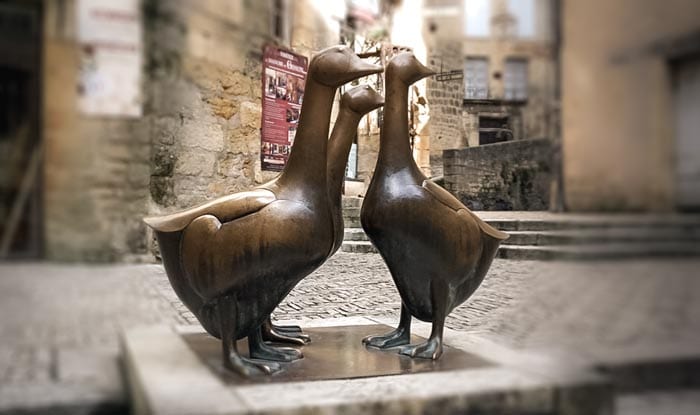
Not enjoying the meal your French hostess serves could be seen as a faux pas.
Before our French country life, I swore I would never eat foie gras, a delicacy in France. The process of force-feeding geese to swell their livers seems hauntingly cruel to me.
However, I soon realized that making foie gras in French country living is as normal as baking a batch of homemade cookies or scones. And it didn’t take long to realise that the competition as to who excelled in the task was indeed fierce!
The villagers in Villars, undeterred by our limited French, welcomed us with numerous dinner invitations accompanied by lively gesticulations.
At our first village dinner, guess what was on the menu? If you thought ‘foie gras,’ you’re spot on! It’s a staple here, deeply woven into the fabric of local tradition.
Our delightful hostess, gleaming with pride, presented the plate, eagerly explaining that she had made it especially for us.
I was torn.
She’d gone to so much trouble, and here she was, leaning in and watching with eager eyes.
As ethics and etiquette battled within me, our hostess continued to detail the meal’s reliance on local products, adding to my dilemma.
I ate the foie gras.
In fact, I found myself eating foie gras at several more dinners, with each hostess keen to prove that her version was the best.
I’m not particularly proud of my decision to push ethics to the sideline but life in a French village can be quite lonely if you get the villagers offside!
So let’s just say… what happens in rural France stays in rural France😉
French Village Life in General
Travelling through a French village, you might not see a single soul and begin to wonder if anyone lives there at all
Many French village residents are older, while the younger generation often opts for the faster-paced life of metropolitan areas. Numerous UK ex-pats have also retired to the French countryside or own summer homes there.
This is why many charming French window shutters stay shut all winter, only reopening in the summer when an influx of visitors and returning residents breathe life back into these homes.
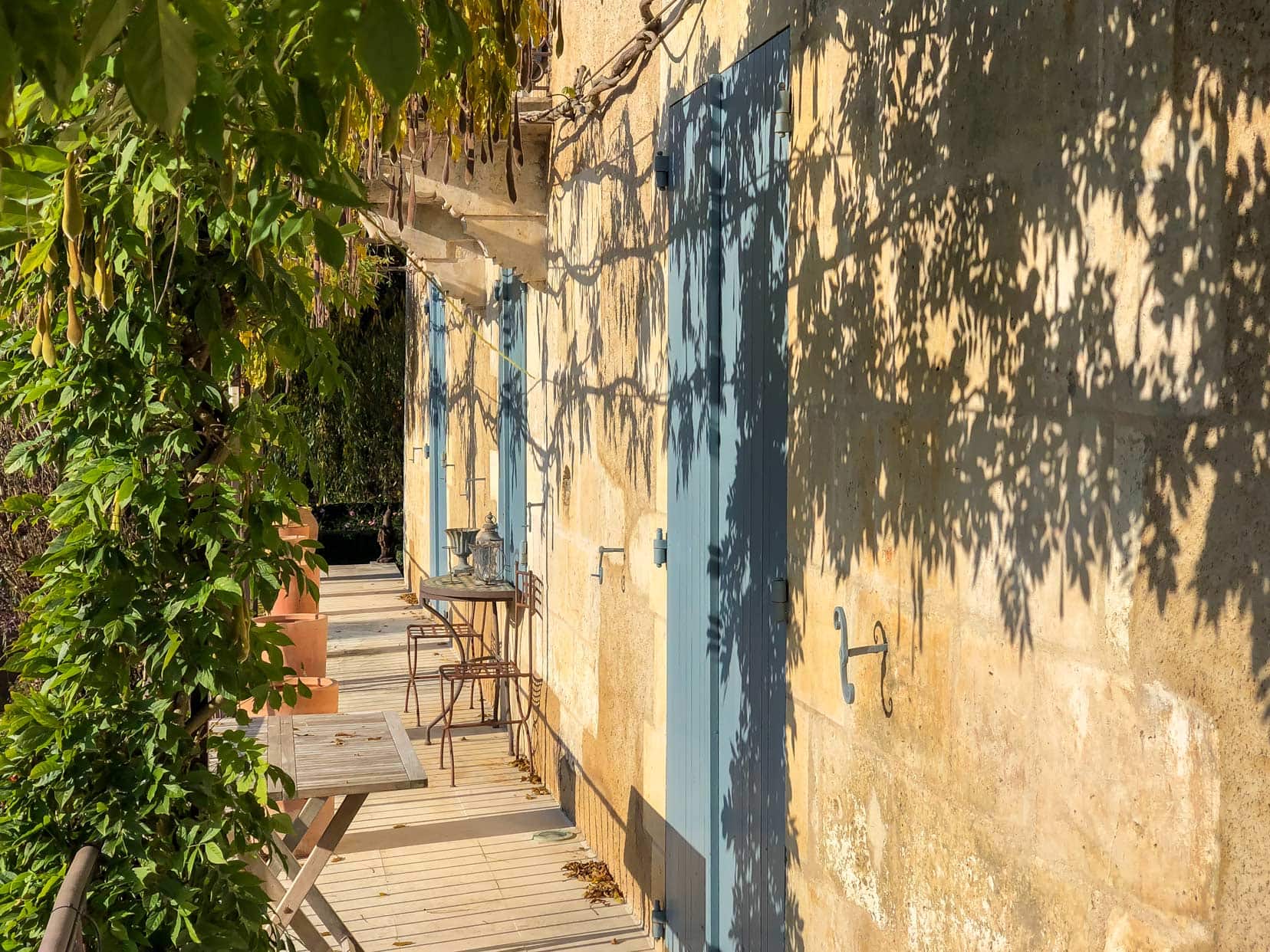
During winter, much of the hospitality industry in rural French villages hibernates. Some restaurants close entirely, while others operate on limited hours.
This contrasted sharply with Australia, where shops and restaurants are typically open around the clock, and was quite a surprise to us.
In French villages, weekends are truly observed as times of rest.
Shops close on Sundays and often shut down for lunch on Saturdays. During the week, it’s common for shops to close for a few hours at midday as well.
Living in rural France means adjusting to a life without takeaway food. For nine months, we didn’t have chips, pizza, or curry. The closest thing to fast food was the fresh baguettes from the local bakery.
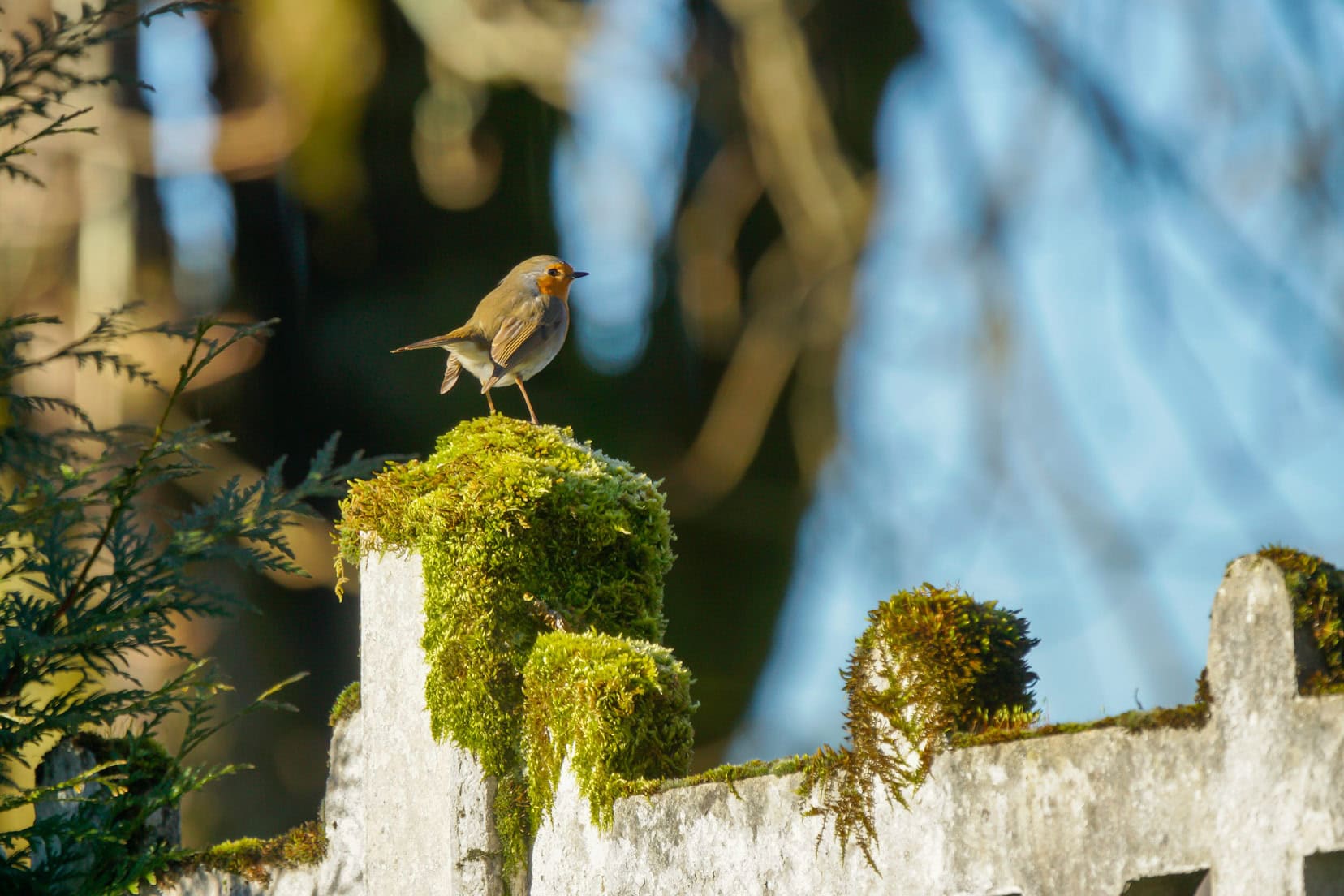
French Village Life … That’s a Wrap
The defining features of French village life are its pace and simplicity. Traditions have flowed smoothly for centuries, untouched by the rush of modern life.
Yet, I find myself questioning how long these traditions can withstand the ever-creeping vines of technology that reshape our existence. It’s hard to imagine the younger generation competing for foie gras trophies or embracing the remoteness of village life.
French village life offered a serene escape from the hustle and bustle, and the aging demographic only highlighted this tranquillity. We hope it will be preserved for a while yet, along with the homemade jams and jars of conserved foods on French villager’s shelves.
Have you experienced the enchanting simplicity of rural France?
Share your stories or drop questions below about navigating life in these idyllic settings. Explore more about our adventures in France here.
Pin and Save for Later
You May Also Enjoy:
Before You Go – Are You Planning Your Travels?
These are the travel resources we recommend and use when planning our trips.
- 🚘 Car Hire: We use DiscoverCars.com
- Motorhome/Campervan Rental: We highly recommend the Motorhome Republic
- 🪪 Order your International Driver’s Licence online here
- 🛏 Book Accommodation: We use Booking.com to find accommodation that suits our budget
- 🐶 Pet Sitting/Pet Sitters: Check Out TrustedHousesitters here (Use our Discount code: LIFEJOURNEY25 for 25% off. )
- Activities and Experiences: Get Your Guide and Viator
- Travel Insurance: Safetywing or World Nomads
- 🥾 Travel Gear and Accessories: Check out our top picks here — Lifejourney4two page on Amazon
For a more thorough list, visit our Travel Resources page here.

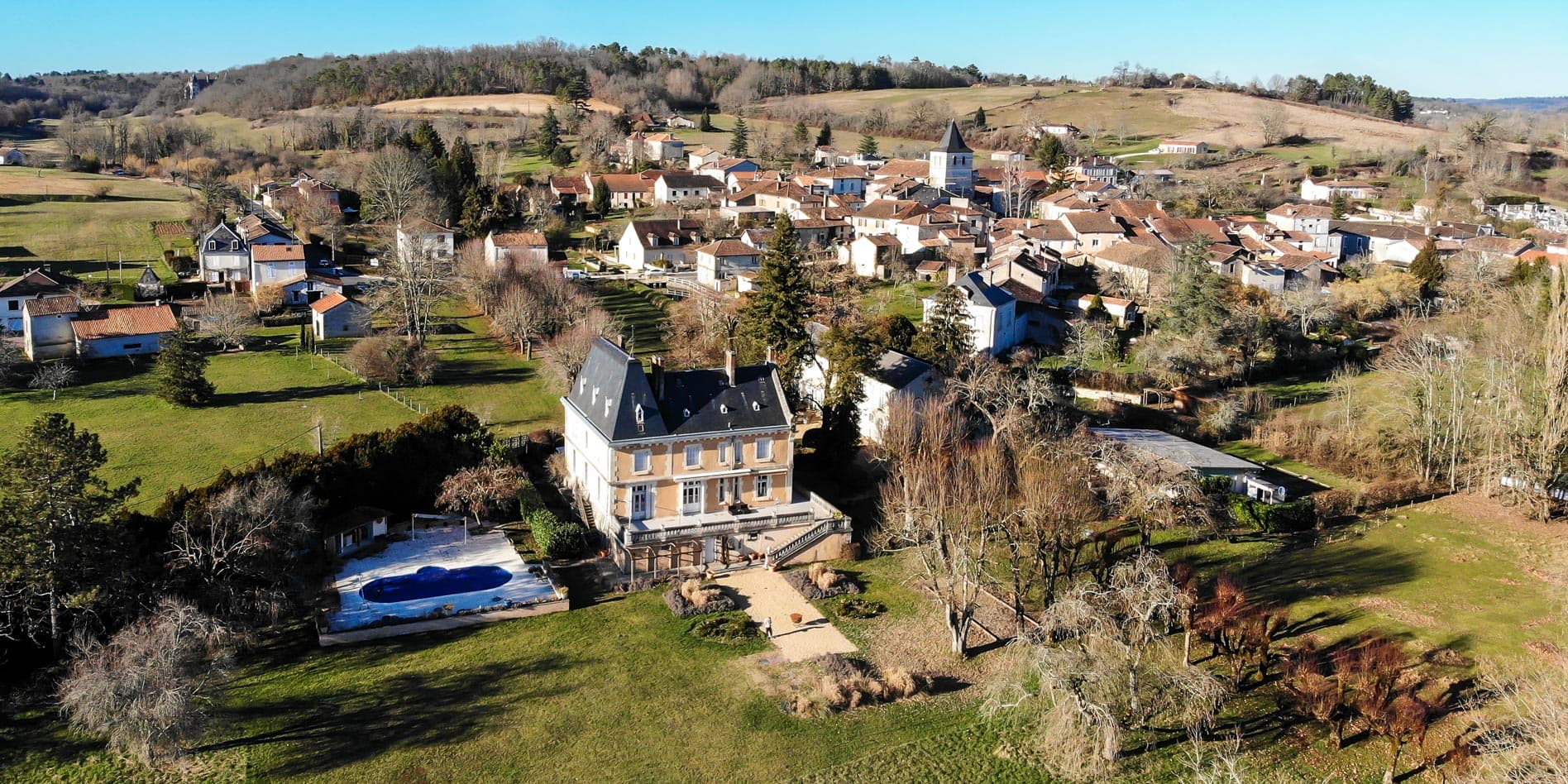
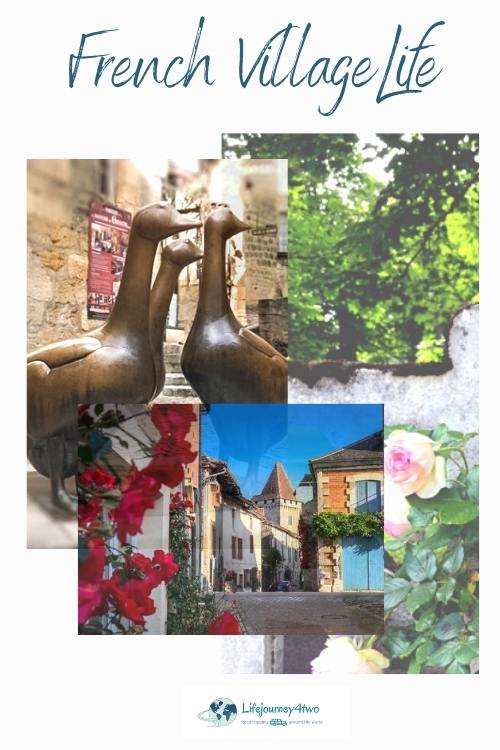
Comment on France and especially Dordogne doctors’ offices – it always seemed an odd extension of French politeness, when the doctor not only said hello to patients who were there because they were ill, but then kissed or shook hands with everyone else. Surely Covid-19 has changed this???!!!
Hi Kevin, it must be particularly difficult for the french to be practising social distancing – kissing is such a huge part of their culture. And yes, that French politeness and custom would definitely not be helping to minimise infection between patients – and the doctor would have had to develop a pretty sturdy immune system too;)